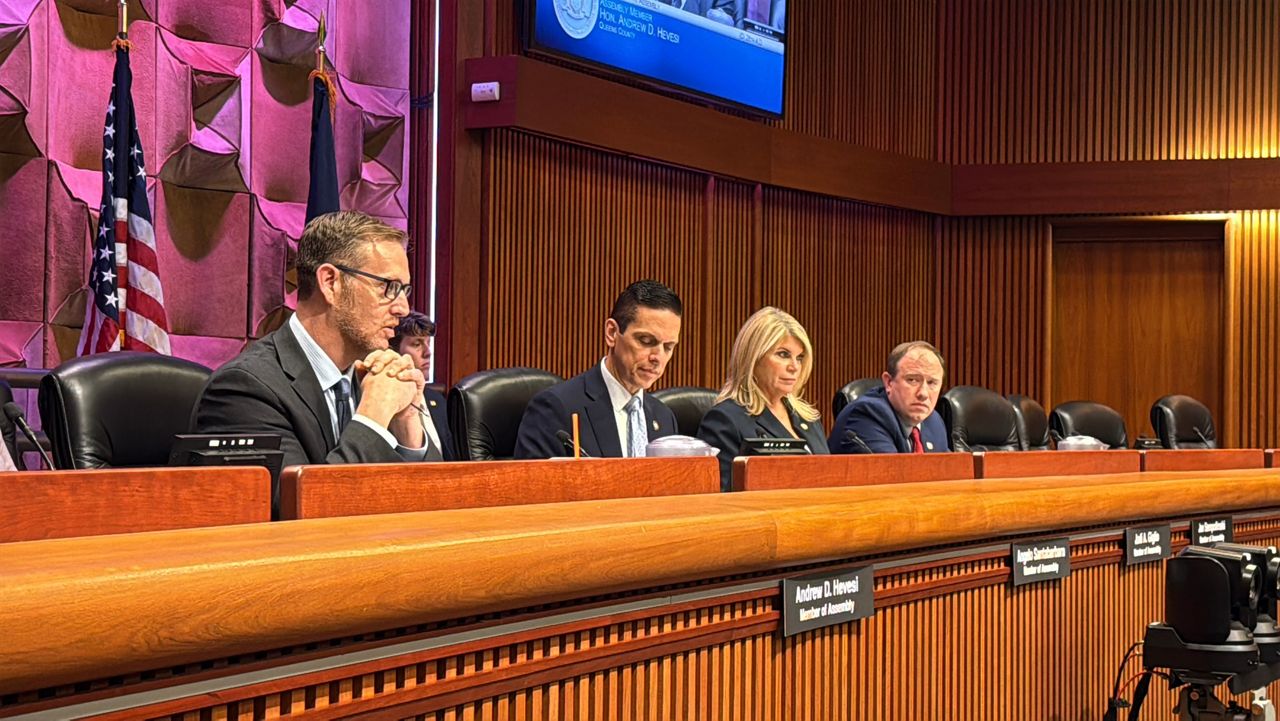Lawmakers said the state legislature must act to give New Yorkers with disabilities more housing options and force the state agency that oversees congregate facilities to modernize its policies.
About 80% of New Yorkers with intellectual or developmental disabilities live with a caretaker older than 60, or over 100,000 people of the roughly 130,000 served by the state Office for People with Developmental Disabilities.
The statistic alarmed state assemblymembers who held a hearing about the issue Monday in Albany.
“The system we have now was designed for years ago [but] the modern-time needs are entirely different,” said Assemblyman Angelo Santabarbara, a Democrat who chairs the People with Disabilities Committee. “Every other agency has adapted, has changed. OPWDD has not.”
Santabarbara has a 24-year-old adult son with autism and knows the struggles of finding suitable housing in the state.
People with intellectual or developmental disabilities are waiting years for housing, and the assemblyman said existing regulations prevent many New Yorkers from living independently.
Current law sets narrow parameters to place people in a residence. The agency often resists more than four people with disabilities living in the same place.
“OPWDD wants to keep the system the way it is, the way it’s operating,” Santabarbara said. “It’s hard to change things once the system has been operating like this for so long, but it’s not their job to dictate policy. It’s not their job to decide what legislation we are and are not going to pass.”
Other rules hinder OPWDD from connecting people to non-certified housing.
State law restricts families from creating an independent living option with a caretaker. Several lawmakers said the agency worked to defeat legislation this session that would have changed that, and it didn’t clear both houses.
“Non-certified housing … is where most people with disabilities want to live, but OPWDD is not facilitating that — they’re hindering it,” said Tom Abinanti, a former state assemblymember who has an adult son with autism. “OPWDD is stuck in the past.”
The agency has deinstitutionalized people and developed programs, but lacks a modern housing policy, Abinanti said.
“They insist that only their staff can determine who is qualified, who is high-enough functioning to be able to live on their own,” he added. “How do they know what a person can do or can’t do? If you’re person-centered, then let the person or the person’s circle of support determine where that person should live. OPWDD should not be intruding itself on making those decisions.”
Assemblyman Andrew Hevesi, who chairs the Assembly Children & Families Committee, blames much of the current shortage of years of cuts to services for disabled people under former Gov. Andrew Cuomo.
“Andrew Cuomo imposed 12 years of mind-bogglingly stupid financial austerity for no reason, and the consequence here today is that we now have families coming in and talking about they have no place to put their kids, there are no services, we have to put them out of state,” Hevesi said. “… That was the catalyst for most of our major problems here.”
Lawmakers said they want to compromise with the Office for People with Developmental Disabilities about which rules to change to help thousands of people with aging caretakers.
Hevesi said vague regulations and a lack of funding prevent the agency from doing more.
The upcoming session will likely bring little relief with a $4.2 billion deficit and less aid from Washington, pushing lawmakers to focus on regulations.
“I don’t think we’re going to have the funds to do what we need to fix this entire system, so I think regulatory change is the smart way to go first,” Hevesi said. “They’re looking to do more but they’re hamstrung for a variety of angles.”
Advocates testified Monday that quality care in certified group homes lags behind the societal shift for better care for people with disabilities, and years of underfunding led to fewer staff and increased neglect and abuse.
Katy Faivre, the statewide lead with the NY Alliance for Developmental Disabilities, said she’s tired of worrying about her brother, Paul, who has cerebral palsy and lives in a certified group home.
“I don’t want to worry about Paul anymore,” she told Spectrum News 1. “I’m 66. He’s 71. We should be having the time of our lives.”
Office for People with Developmental Disabilities Commissioner Willow Baer did not participate in Monday’s hearing, citing scheduling conflicts.
“Under Gov. Hochul’s leadership, we have increased housing subsidies and expanded the availability of affordable and integrated housing opportunities for the 40,000 New Yorkers who rely on OWPDD’s continuum of housing and supportive services,” according to a statement from the department Monday. “Since 2022, the state has made more than $4 billion available to non-profit service providers to support investments in the workforce, strengthening the state’s ability to serve people with the highest levels of need, and enhancing people’s ability to remain in the community safely and with support. We will continue to collaborate with the people we support, families and providers to ensure people with disabilities have the most person-centered access to services possible.”
The agency does not comment on pending legislation.

